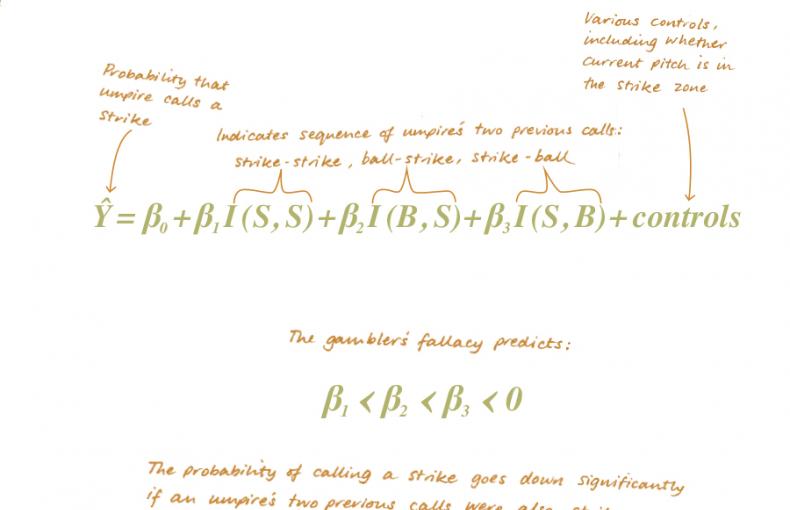
An Economist Debunks ‘Gone with the Wind’
Chicago Booth’s Richard Hornbeck discusses research that finds emancipation created huge economic value.
An Economist Debunks ‘Gone with the Wind’The gambler’s fallacy could lead umpires to make the wrong call.
How likely is it for a baseball umpire to call three strikes in a row? As it turns out, the umpire himself may believe that such a streak is unlikely to happen, which could lead him to make the wrong call, according to research by Daniel Chen of ETH Zurich and Chicago Booth’s Tobias J. Moskowitz and Kelly Shue. Umpires may suffer from the “gambler’s fallacy,” or the mistaken belief that a fair outcome implies alternation between balls and strikes, even though consecutive balls or strikes often occur just by chance. After two strikes, the umpire could be wondering if the next pitch will likely be a ball rather than another strike, and indeed call it that way.

Daniel Chen, Tobias J. Moskowitz, and Kelly Shue, “Decision-Making under the Gambler’s Fallacy: Evidence from Asylum Judges, Loan Officers, and Baseball Umpires,” Fama-Miller working paper, March 2015.

Chicago Booth’s Richard Hornbeck discusses research that finds emancipation created huge economic value.
An Economist Debunks ‘Gone with the Wind’
Research examines people’s willingness to cut ties with companies whose actions they deem immoral or unethical.
How Much Will Consumers Sacrifice for a Moral Stand?
The depletion of the funds points to bigger fiscal issues.
Should We Worry That the Social Security Trust Funds Are Going Bust?Your Privacy
We want to demonstrate our commitment to your privacy. Please review Chicago Booth's privacy notice, which provides information explaining how and why we collect particular information when you visit our website.